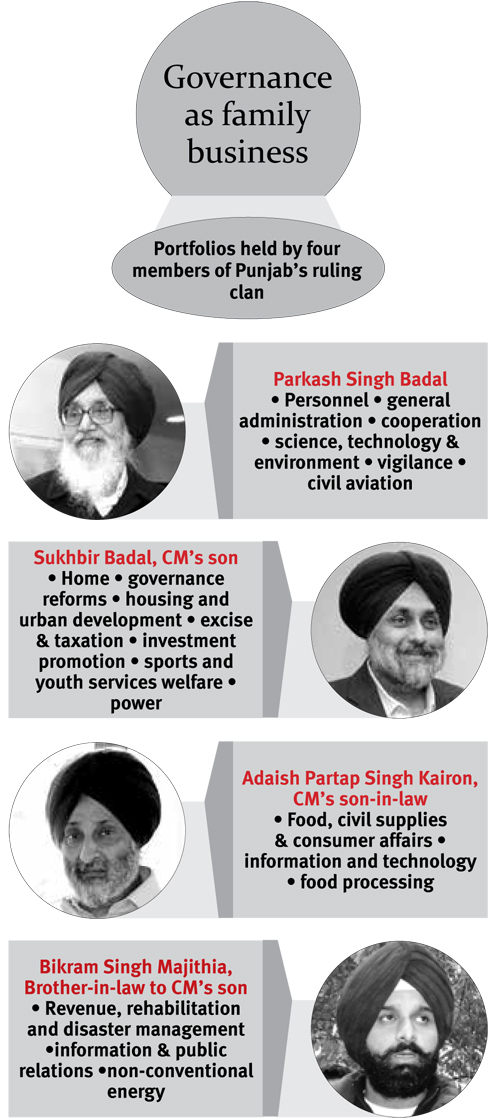A once-rich state has to raise money by pledging widow ashrams even as the rulers increase personal wealth manifold
Deepak Dhaba is a popular eatery on the Barnala-Sangrur highway. Truckers, drivers and passengers break their journey here for a tasty Punjabi meal. One day, the regulars to the place were told that its ownership had changed hands. Now, visitors talk in hushed tones about its new albeit unconfirmed owner, Sukhbir Singh Badal, Punjab’s deputy chief minister and son of octogenarian chief minister Parkash Singh Badal.
The story, part of the folklore about the Badals, is gaining currency in the state. For people, the Badals’ reputation for grab-any-flourishing-business-that-you-see is akin to J Jayalalithaa’s alleged penchant for buying or grabbing prime properties across Tamil Nadu once upon a time. However, Congress leader Sunil Jakhar swears by the Deepak Dhaba story. “I raised this issue in the assembly too. The Badal family has a mafia to execute such petty takeovers,” he told Governance Now.

Almost a decade of power has seen the father-son duo and their extended family expand and consolidate their businesses. Their assets have soared manifold even as the state stands deep in debt – virtually broke. Its coffers are empty to the extent that the coalition government of the Shiromani Akali Dal (SAD) and Bharatiya Janata Party (BJP) had to pledge widow ashrams and jail premises to raise funds for financial exigencies.
September last year saw people’s simmering anger, against the Badals, snowball into a state-wide agitation. Farmers, state government employees, religious leaders, villagers and even city dwellers – all came out on streets, for a variety of reasons. Cotton crop had failed because of spurious insecticides supplied by the state government agencies. The Akali Dal had misused Shiromani Gurdwara Prabandhak Committee (SGPC, Sikhism’s apex body) for political gains. The trigger for the SGPC revolt was an engineered pardon of ‘godman’ Ram Rahim.
The killing of two youths in a village in Faridkot by police and desecration of the Granth Sahib kept the agitation alive.
Also, for the first time since 1984, pro-Khalistan slogans were echoing in Punjab; banners demanding the utopian Sikh land were strewn across many roads. Chaos prevailed for over a month. The ‘panthic’, or religious, bodies and Khalistan supporters who had been lying low for decades were out for a kill. Suddenly a big drama was unfolding in the SGPC as 15 members resigned creating a crisis that necessitated a sarbat khalsa, a grand meet of all panthic bodies. It was lost on nobody that panthic bodies were turning against the Badals and the Akalis.
Read full story from February 16-29, 2016 issue to know how governance has become a family business in the state.
